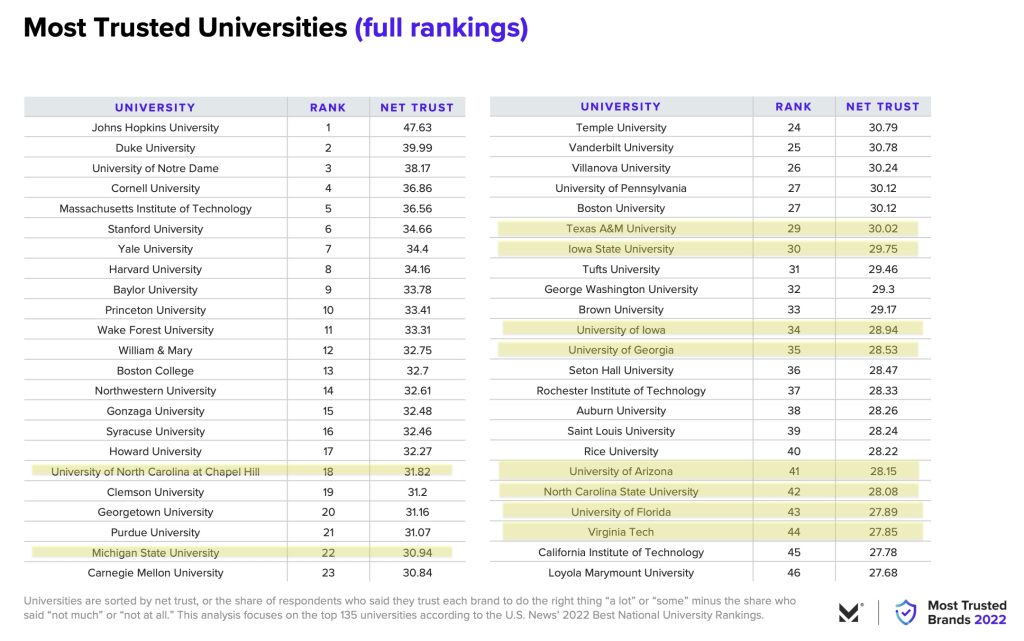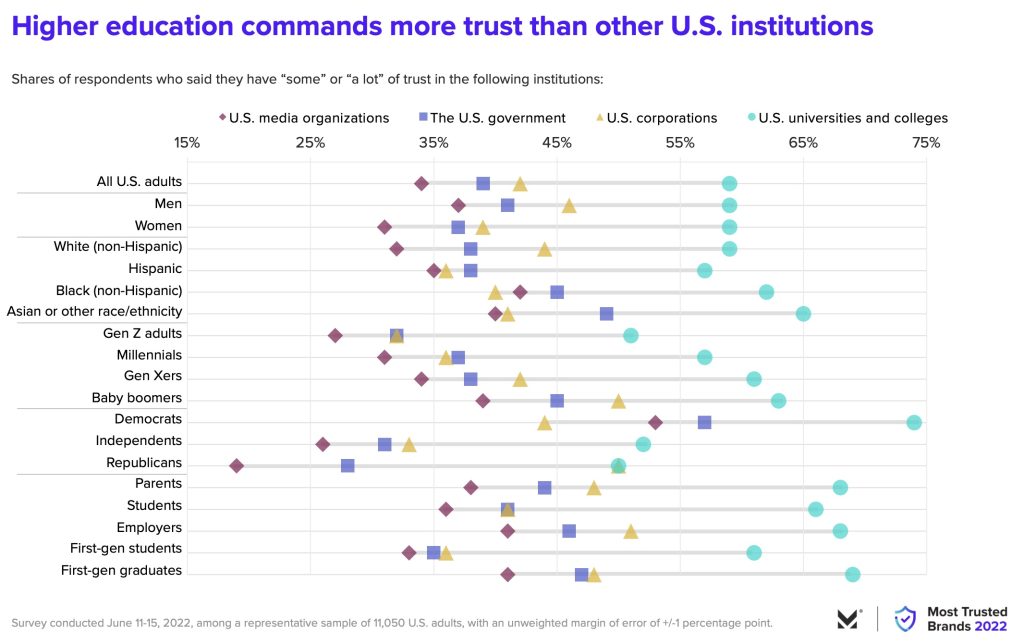Morning Consult, a company that conducts regular surveys on things like consumer sentiment and trust, has released a report breaking down public trust in American universities. They asked 11,050 adults about their level of trust for the top 135 universities listed in US News and World Reports.

On the full list above, the highest ranking public university is UNC Chapel Hill at 18. Of the top 46, there are only 10 public universities.
However the trust of higher ed broadly is far above that of many other large US institutions, beating out the government, the media, and corporations by quite a lot.

The trust levels stratify along several different lines, most noticeably Democrats and Republicans (Democrats are more likely to trust any higher ed), generation (Gen Z is the least likely to trust higher ed, in spite of the fact that they are generally more left than the older generations), and interestingly between Gen Z and Students, since most of the current population of college students falls into Gen Z. This could indicate a large population of young adults who didn’t or couldn’t attend school and hold a lot of distrust for education, since currently only 42.1% of people 18-24 are enrolled in college (although many would likely have graduated already). Exploring the origins of this distrust and the population breakdown could provide insight for groups that higher ed still needs to make inroads on.
Interestingly, the most trusted universities are not exactly the most sought after or selective. They are generally extremely selective colleges, but the fact that Johns Hopkins ranks more than 10 percentage points above the highest ranking Ivy League School (Cornell) might say something about the effect of their perceived status.
But the low ranking of public universities further splits students who are fortunate enough to attend the clique of prestigious colleges and the approximately 74% of students who attend a (almost universally more affordable) public university. It is often far to easy to focus on the goings on for a handful of elite universities whose graduates make up a large portion of the politicians and business leaders, but the vast majority of students go through a far more local public college experience, and without public trust, they might not do well in the rocky future that seems likely for education.
More Stories
Tutoring as a part of teaching / Everything comes back to money
One of the difficult things with education is our reliance on a “one size fits all” model. We have for...
Justin Reich on Learning Loss, Subtraction in Action, and a future with much more disrupted schooling
Justin Reich is an education and technology researcher and the director of MIT’s Teaching Systems Lab. He hosts a podcast...
Public K-12 Enrollment is falling and that is dangerous and exciting
A surprising result of COVID and the resulting school closures is that many parents, after struggling to figure out how...
Esports could help re-diversify a shrunken curriculum
Esports and schools feel like a pretty strange fit. Regular sports have always gone with schools, but adding esports still...
Review of “How to Raise Successful People” by Esther Wojcicki
This is an interesting book with the perspective of a unique person that ultimately falters because of the blind spots...
SIGGRAPH at 50
SIGGRAPH , the premier conference on computer graphics education, held its 50th event last week in Los Angeles. Back in...
